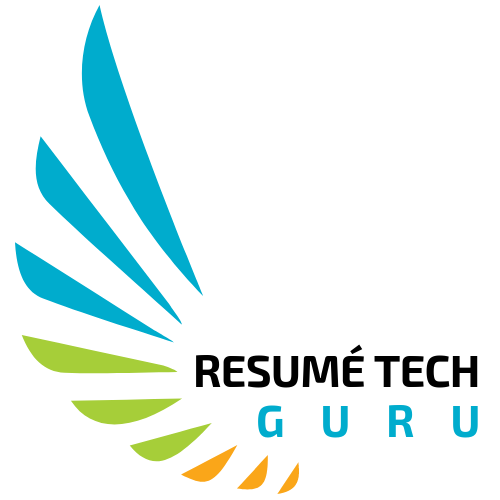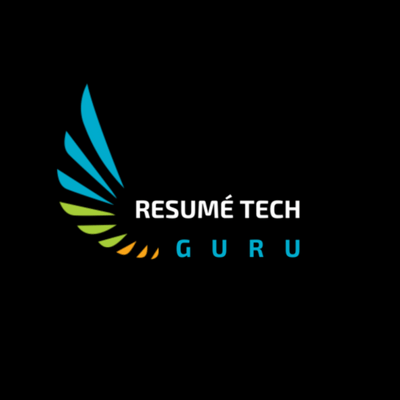After 3 hours of research, I failed to find a fact-based number for how long it takes for an “employed” executive or an aspiring one to land their next big-impact role.
I googled through hundreds of sites, checking executive placement companies, U.S. Bureau of Labor Statistics, Statista, and media such as Harvard Business Review and Forbes.
Yet, I notice that career bloggers confidently use the five-month number for how long it will take for executives to find their next career position.
It’s not based on empirical evidence but rather thinly applies the U.S. government statistics for unemployed persons by duration of unemployment. For example, in July 2022, the average (mean) duration of unemployment was 21 weeks, equally 4.8 months. But wait, those aren’t employed people nor necessarily executives.
It’s what comedian Stephen Colbert would characterize as “truthiness,” which is the belief that something is true based upon perception rather than cold hard facts. If you have a source to substantiate five months, I’d love to hear from you!
In my sample size of hundreds of tech exec clients, the time to secure a new role varies all over the map. A few people land jobs in less than two months, including Zach (all names have been changed for privacy), an employed but rather disenfranchised director of supply chain management at a multinational company based out of Seattle. For others like Adam, a former Microsoft Q&A Manager, over a year has passed with no job changes, which is quite frustrating for him.
So, what makes some executives successful in job searches in the short term while others aren’t? There’s not one magical formula, but I have a client base of evidence that points to a prioritization challenge.
Making Your Job Search a Priority
Did you know that more than half of adult Americans planned to vacation this summer? And that July wins the popularity contest for summer vacations?[1]
It’s highly apparent to me. My consulting practice has seasonal fluctuations, and my clients overwhelmingly believe that making themselves a priority for a job search is, well, work. In turn, summer is a time to check out. Don’t get me wrong, I believe in self-care and taking personal time. In fact, I’m taking four weeks off between September-October to continue my travel bucket list to Seville and Torremolinos, Spain.
Since August is the tail end of most American vacations, I propose focusing on “the work” of your career journey.
What follows is an excerpt from the last chapter of my book Clicks, Tricks, & Golden Handcuffs: 5-point Roadmap for Tech Execs to Land Big-Impact Roles. I discuss what works well for my client’s success, highlight motivation research, and provide ideas to become the Action Hero (more about that in a minute).
What’s Your Type?
My clients fall into four major categories when it comes to prioritization.
- The Out-of-Towner: 15% of clients travel for work or vacation and do not utilize that time to complete our consulting collaboration. For example, in the case of my Microsoft client Ashok, the career questionnaire remained unanswered, and his resume edits were put on hold even though he was on a 16-hour flight from the U.S. to India.
- The Work Perpetrator: 25% of clients prioritize their current workload over looking for a job. The irony is that they dislike what they are doing but focus more on that than a job search implementation strategy.
- The Ghost: 25% of clients contact me, agree to move forward, and then I never hear from them again. In some cases, such as my client William, they even prepay; I call it procrastination money. Hey, I will take it to pay my business operating expenses.
- The Action Hero: 35% of clients meet with me, and we complete their initial project within 10 business days. They prove that actions speak louder than words; the majority, like my client Amaira, land jobs within 1-4 months.
According to Dr. Bryan Robinson, “procrastination is an unconscious way your mind tries to take away the anxiety of ‘Can I do it perfectly?’ so postponing seems to bring relief in the short term while undermining your career in the long run. If you avoid the looming project, you temporarily avoid the judgment and self-doubt.”[2]
In the past year, I have read blogs and watched videos mentioning hitting the start button when pursuing new avenues. It sounds simple, yet it is challenging for some to begin their executive career, face a mid-life assessment, or plan to retire within five years. It prompted me to research how to prioritize yourself if you do not define yourself as the Action Hero.
Career Motivation
Although there is limited academic research regarding job search behavior, I found one in the Journal of Applied Psychology related to personality-motivational analysis. It identified six variables for job search success: personality traits, generalized expectations, self-evaluations, motives, social context, and biographical variables.
“Job search is more strongly related to psychological variables encompassed by the broader construct of positive affectivity (e.g., extroversion, conscientiousness, self-esteem, job search efficacy) than to variables encompassed by the broad construct of negative affectivity (e.g., neuroticism, agreeableness).”[3]
In a nutshell, a positive job search outcome relates to your effort, mindset, and motivations.
I am highly self-motivated when it comes to certain things, are you? Gosh, I am motivated to monitor my health, pursue joy, help others, maintain friendships, and complete my global travel bucket list. Cleaning, not so much. Sometimes the living room rug goes two weeks without vacuuming.
According to Dr. Kou Murayama, a professor at the Hector Research Institute of Education Sciences and Psychology at Tübingen University, motivation science is an emerging research area.[4] The shocker to me is the nascent aspect of this field of research. It turns out that while motivation is related to everything we think or do, there is academic segregation for motivation theories in a psychology focus, whether educational, social, organizational, or cognitive neuroscience. If you collapse them under one umbrella, that’s called motivation science. I am pretty familiar with motivation science since my initial career focused on it for corporate brand positioning.
Decades ago, I was an adjunct professor teaching consumer behavior to undergraduate and graduate students at The University of Texas at Dallas.
The syllabus focused on what human values drive and motivate consumers to purchase something or take action, such as voting. It is related to Maslow’s 5-tier hierarchy of human needs in motivational theory: physiological (food and water), safety (employment), love and belonging (family), self-esteem (achievement), and self-actualization (meaning and inner potential).[5]
My teaching examples related to corporate clients who wanted to figure out why consumers purchased cars, ate salty snacks, selected a political candidate, or joined the army.
In 1:1 interviews with young adults between the ages of 18 and 21, I was intrigued by what motivated them to enlist in the military. Our consumer behavior research highlighted positive reinforcements, as well as the avoidance of negative consequences. For some, the military was a means of escaping a bad situation at home or simply growing up by learning discipline, leadership principles, and teamwork. For others, it was a way to pay for a college education or continue a family tradition of service for honor and recognition.
In psychology, there are four major types of motivation related to a person’s behavior and pursuit of goals.[6]
- Extrinsic: Refers to behavior driven by external rewards such as money, fame, grades, and praise. This type of motivation arises from outside the individual.
- Intrinsic: Opposed to extrinsic motivation, intrinsic originates inside of the individual. You participate in an activity like sports or reading for its own sake versus external reward.
- Introjected: Generated by guilt, worry, or shame. This is somewhat external. You enact a behavior not because you want to but for fear of obligation to a parent, friend, or manager.
- Identified: You have recognized the importance of a behavior and have accepted it in achieving a goal; this is somewhat internal. An identified motivation does not mean you have to find enjoyment in taking action. Recall the moments when you genuinely believe exercise is worth doing because it’s right for you, and the benefits are valuable. I purchased a gym membership in my thirties and waved every time I drove down the street but failed to drop in.
What does all this mean? People want to advance in their careers but are challenged by executing the steps based upon different motivations. In my opinion, universities and companies do not train us adequately for success in this endeavor. I had a CIO client mention there is a vast void for a job search since you can’t discuss it with anyone at your current company. Plus, it is not something you conduct on an annual basis.
So, Now What?
It’s time for you to become the Action Hero. Here are some tips that my clients have applied to achieve success in their job search:
- Invest in Yourself: If your LinkedIn profile and resume have cobwebs and don’t know where to start, hire an expert. There are over a million LinkedIn Services profiles for coaching and mentoring. For example, you can obtain up to 5 free proposals from resume writers based on your request and LinkedIn profile information.
- Prepare Outreach Campaign: Do you know those project plans that make you successful? Conduct one for your job search with a 30/60/90-day plan. Within 30 days, create a targeted list of companies, develop a list of contacts who currently or formerly worked at that company, and customize your elevator speech for why you want to work there and what you bring to the table. For 60 days, keep a spreadsheet of your progress with notes and status on results. If in 90 days there aren’t results, it may be time to reassess your career goals and chat with your mentor.
- Book Time: I’ve observed success when clients book a recurring calendar item for themselves related to the job search. It takes 1-2 hours of daily focus, five days a week, to network with colleagues, reach out to potential companies, and prepare for interviews.
There’s no 5-month magic for your tech executive job search. The good news is that you’ll be actively working to achieve your next role with an action plan.
Best to you on your new Action Hero journey!

[1] Saad, Lydia, “Majority of Americans Plan to Vacation This Summer,” Gallup News Service, May 31, 2022, https://news.gallup.com/poll/6112/majority-americans-plan-vacation-summer.aspx.
[2] Bryan Robinson, Ph.D., “The Real Reason You Drag Your Feet When A Deadline Looms: 8 Tips On How To Get To The Finish Line,” Forbes, June 8, 2019, https://www.forbes.com/sites/bryanrobinson/2019/06/08/the-real-reason-you-drag-your-feet-when-a-deadline-looms-8-tips-on-how-to-get-to-the-finish-line/?sh=3b00d61874c6.
[3] Ruth Kanfer, Connie Wanberg, and Tracy Kantrowitz, “Job search and employment: A personality-motivational analysis and meta-analytic review,” Journal of Applied Psychology 86 (2001): 837-855.
[4] “Nature of Intrinsic Motivation and Interest,” Motivation Science Lab, accessed August 27, 2021, https://koumurayama.com/research.php.
[5] A.H. Maslow, “A Theory of Human Motivation,” Psychological Review, 1943, 50, 370-396, http://www.researchhistory.org/2012/06/16/maslows-hierarchy-of-needs/.
[6] “Four Motivations,” Changing Minds, accessed August 28, 2021, http://changingminds.org/explanations/motivation/four_motivations.htm.


